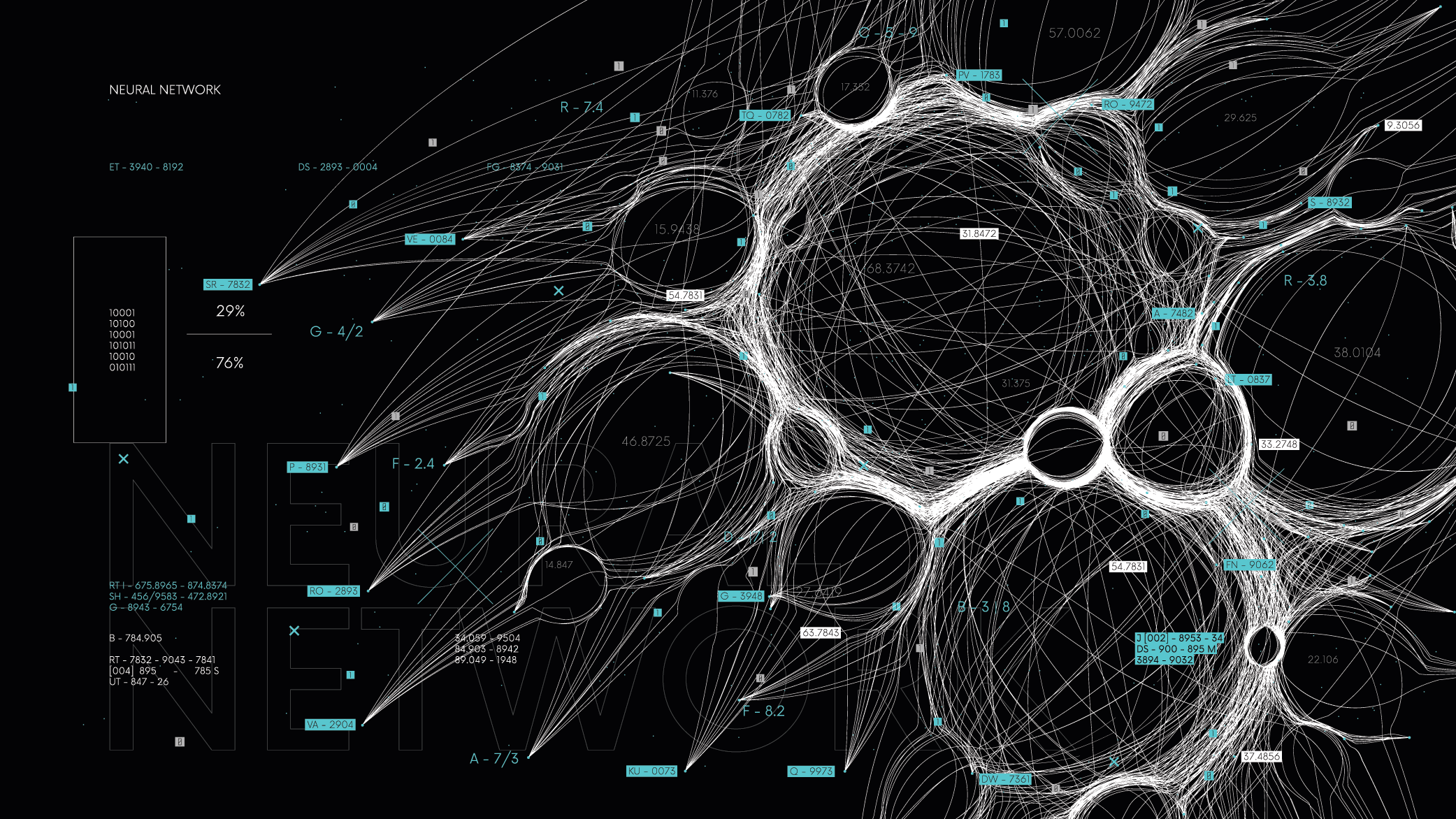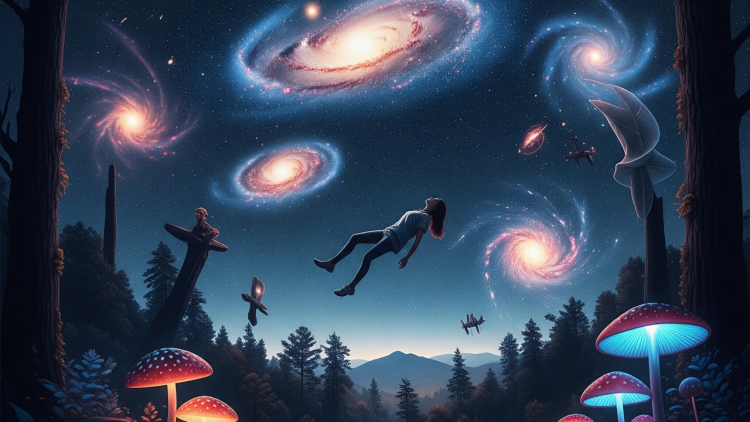The realm of dreams has long fascinated humans, representing a window into our subconscious mind, a place where reality and fantasy intertwine. For centuries, philosophers, psychologists, and creatives have tried to decode the purpose and meaning of our dreamscapes. But what if, instead of the unpredictable neural patterns of our own minds, dreams were shaped and designed by an artificial intelligence? What could happen if AI became the architect of the dreams that form our nightly reverie? In this article, we will explore the imaginative, ethical, and psychological implications of AI-crafted dreams.
The Nature of Dreams: A Brief Overview
Before diving into the futuristic world of AI-designed dreams, it’s essential to understand the basic nature of human dreams. Dreaming occurs during the rapid eye movement (REM) phase of sleep, and scientists still aren’t fully sure why we dream. Various theories abound, including the idea that dreams serve to consolidate memories, process emotions, or even prepare the brain for potential future challenges.
From a neurological perspective, dreams are the product of the brain’s random firing of neurons during sleep. These bursts of activity activate different regions of the brain, including those responsible for memory, emotion, and sensory input. The resulting images, sensations, and narratives can be bizarre, disjointed, or surprisingly vivid.
However, despite all the mystery surrounding dreams, one thing is clear: they are deeply personal and subjective experiences. What you dream about is often a reflection of your emotional state, desires, fears, and past experiences. This inherent unpredictability is what makes dreams so fascinating to explore and, at times, so difficult to understand.
AI: The Architect of Dreams?
Now imagine that instead of your brain, an artificial intelligence is responsible for constructing your dreams. AI systems, especially those using machine learning and deep neural networks, have made tremendous strides in understanding and generating human-like creativity. From generating artwork to composing music, AI is already starting to show its potential as a creative force. So, what happens when AI begins to design dreams?
Let’s consider a few possibilities:
1. Personalized Dreamscapes
One of the most immediate advantages of AI-designed dreams is the potential for personalization. Imagine an AI that analyzes your mood, emotional state, and life circumstances, then creates a dream specifically tailored to your psychological needs. Feeling anxious? The AI might craft a calming, serene dream to help you relax. Struggling with unresolved emotions? Your dream could become a safe space to work through your feelings, offering a cathartic experience.

Through algorithms that track patterns in your sleep and emotional well-being, an AI could customize your dreams to serve as a form of therapy or self-improvement. Cognitive Behavioral Therapy (CBT) and other therapeutic techniques could be incorporated into your dreams, allowing the AI to subtly guide you toward healthier thought patterns or emotional resolutions.
In this sense, dreams could evolve from being random, unpredictable occurrences to intentional, curative experiences that promote mental well-being.
2. Hyper-realistic Worlds and Augmented Consciousness
What if an AI could create dreams so vivid, so detailed, that they rival (or even surpass) waking reality? With advancements in virtual reality (VR) and neural interfaces, AI could simulate entire dream worlds with mind-blowing detail. In these dreamscapes, you could experience environments that feel as real as life itself—whether it’s walking on an alien planet, exploring a hyper-modern city, or living through an alternate history where you’re a famous historical figure.
These hyper-realistic dreams could blur the line between waking life and sleep. Would you even want to wake up if you could spend the night in a fully immersive dream world? This might lead to a profound shift in how we perceive the nature of reality itself. Are our waking experiences any more “real” than the vivid simulations that AI creates for us while we sleep?
3. AI as a Creative Collaborator
Another intriguing possibility is that AI could serve as a collaborator in our dream worlds. What if AI could help you craft your own dream experiences? Instead of passively receiving a pre-designed dream, you could interact with an AI that helps you curate the details of your dreams. You could decide the setting, characters, and even the narrative flow, all while the AI uses its vast processing power to refine the dream to your desires.
For artists, writers, or anyone interested in creativity, this could be a powerful tool. Imagine collaborating with an AI to design a dream where you explore entire novel universes or experience a plot arc for a film you’ve been trying to create. By combining your own imagination with the generative power of AI, the potential for novel, surreal, and intricate dream worlds could be limitless.
4. Exploring the Unknown: What Could AI Uncover About Your Psyche?
Dreams have long been seen as a mirror to the unconscious mind, a place where buried emotions, hidden desires, and unresolved conflicts surface. But what if AI could dive deeper into your psyche than you ever could? AI could analyze the patterns in your past dreams, uncovering deep-seated psychological issues that you might not even be aware of. This could lead to more profound insights into your inner world.
Perhaps AI could recognize subtle emotional patterns, uncover trauma from the distant past, or even create dream experiences that push you to confront certain fears or desires. In this way, AI could be a tool for self-discovery, helping you gain clarity on personal issues that may have been difficult to access through traditional therapy or self-reflection.

5. Ethical and Philosophical Concerns: Who Controls Your Dreams?
While AI-designed dreams might sound fascinating, they also raise important ethical and philosophical questions. Who should have the power to design your dreams? If an AI can tailor your dreams to fulfill certain psychological needs, could it also be used to manipulate or control your subconscious mind?
For example, could a corporation design dreams to make you more susceptible to marketing or consumerism? Or could governments, through AI technology, shape your dreams in order to influence your political opinions or behavior?
Additionally, there are concerns about privacy. Dreams are deeply personal and intimate experiences. If AI systems are monitoring your dream patterns, tracking your emotional responses, and analyzing your subconscious thoughts, who has access to this information? Could this data be used for purposes beyond dream design, such as commercial exploitation or surveillance?
The possibility of AI shaping not just our waking behaviors but also our innermost thoughts raises questions about autonomy and consent. Who should be responsible for ensuring that AI-designed dreams remain a tool for personal growth and not a mechanism of control?
The Future of Dream Design: Is It Already Here?
While we’re not yet at the point where AI can fully design and control our dreams, the technology is already advancing rapidly. Some early experiments in brain-computer interfaces and neurofeedback have explored the possibility of “influencing” dreams. Researchers have even created methods to help people have lucid dreams or guide the direction of their dream narratives. However, AI’s potential to control the design and structure of dreams remains largely theoretical.
That being said, the intersection of artificial intelligence, neuroscience, and psychology could create new pathways for how we think about dreaming. In the future, we may not just sleep to rest but also to undergo digital dream experiences designed to enrich, heal, or inspire us.
As the boundaries between human consciousness and artificial intelligence continue to blur, the question is: Will we ultimately give up control over our dreams to AI, or will we retain the autonomy to shape our own inner worlds?
Conclusion
AI-designed dreams offer a tantalizing glimpse into the future of sleep, consciousness, and creativity. With the potential to create highly personalized dreamscapes, explore new worlds, and even facilitate psychological healing, the possibilities are endless. However, the power to shape our dreams comes with significant ethical and philosophical challenges that cannot be ignored.
As AI continues to evolve, it will be crucial to ensure that it serves as a tool for personal growth and understanding, rather than as a means of manipulation or control. Whether we’re ready or not, the world of AI-designed dreams is just around the corner, waiting to transform the way we experience the most mysterious and surreal part of our lives.











































Discussion about this post